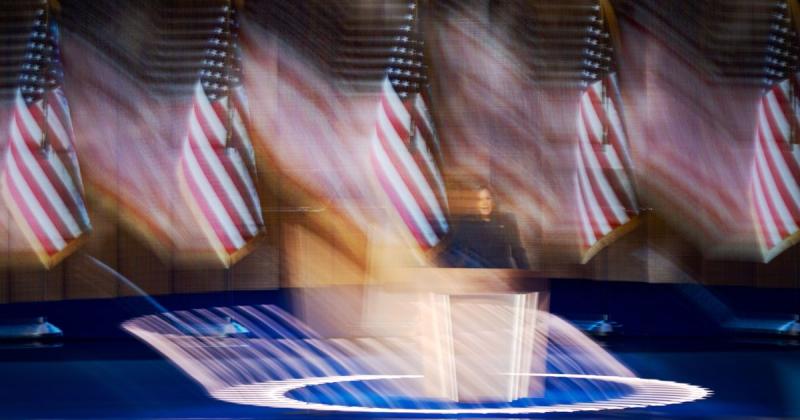Why Kamala Isn’t Preparing to Knock Out Trump at the Debate
By: Gabriel Debenedetti (Intelligencer)



It's the stuff of #Resistance dreams: Kamala Harris, the prosecutor, gets onstage in Philadelphia next Tuesday across from Donald Trump, the felon, and proceeds to brutally expose him as a racist and sexist con man who's been lying to the American people ever since his famous escalator ride nine years ago.
Only that's not how she or her debate-prep team sees her main objective for the debate — at all.
In mock-debate sessions in Pittsburgh, planning meetings in Washington, and briefing-book cram sessions between public events on the campaign trail, the vice-president and her aides have kept much of their focus on fine-tuning ways to keep presenting her as representative of a new political era for the benefit of curious voters who are still interested in learning more about her — and who may swing the race come November.
The debate, say Democrats close to Harris, is simply not the venue for just pumping up her partisans or trying to fulfill a liberal fantasy of so aggressively confronting Trump that his own supporters have second thoughts about voting for him. Instead, Harris's team believes it needs to be about finding moments to educate and convert the voters on the margins. And for a candidate whose rallies feature "A NEW WAY FORWARD" signage and repeated audience chants of "we're not going back," that primarily means trying to keep the focus on her own vision for the future and contrasting it with Trump's. "She's not known in the way Donald Trump is," says one senior Democrat who used to work for Joe Biden and is now close to the Harris campaign's leaders. "It's an opportunity to define herself, which is exciting because who has that opportunity in September of an election year?" What she left unsaid: that this is also why the debate is so risky for Harris, since Trump has a chance to define her, too.
Part of Harris world's thinking is that voters already know about Trump's character and have set views of him that aren't worth reinforcing in the tight but highly valuable speaking windows Harris will have on the campaign stage. (It's not like she has new information to add that might change those views.) And since the debate rules about muted microphones mean she is unlikely to have many clear back-and-forths with him, many close to her team figure she should not try too hard to create moments like her viral ones questioning Jeff Sessions and Brett Kavanaugh as a senator.
That's not to say Harris is unlikely to criticize Trump, just that those critiques will likely be more along policy lines than personal ones. Indictments of his record as president and some of the more unpopular elements of Project 2025, such as abortion and LGBTQ+ rights, are likely to feature prominently in the case she makes for her candidacy. This is the tack her campaign has mostly taken in its paid advertising, even if some of its social-media output has also been trolling Trump for his incoherence and, indirectly, his age. Just last week, the Democratic research group Blueprint tested messaging and found that pro-Harris forces would be smarter to rely on ads featuring a contrast and positive lines about Harris over negative ones on Trump — voters are twice as likely to be moved by the former than the latter, which are only useful on the margins. (The absolute worst-performing ads in Blueprint's tests were purely anti-Trump ads, which were in some cases three times less effective at moving voters than ads focusing on the contrast in the candidates' abortion-policy proposals.)
"There definitely is a desire from folks to truly have him called out on his lies and bullying and have the people of America actually see — be reminded again — of his lack of character, and I think that's made-for-TV entertainment. But the seriousness of the issues that the American people are facing can't be about showmanship or entertaining, they have to be about engagement and projecting a vision for the future," says one senior Democrat who has been close to Harris for decades. Harris is more likely to turn to the camera and highlight Trump's antics by modeling restraint rather than by confronting him and getting dragged into the mud: "She doesn't suffer fools, she is quick to let a fool be a fool without having to match it. People know a fool when they see one."
Some of this posture comes from Harris's previous experience. She has at times been a slashing debater, deploying prepared attacks to great effect in her races for attorney general and to great fanfare in her 2019 presidential race, even if her strike against Biden was met with mixed reviews. Some allies have drawn comparisons between the upcoming debate and her 2016 Senate contest, when her opponent, Loretta Sanchez, dabbed onstage and Harris turned to the camera and calmly said, eyebrows up, "So, there's a clear difference between the candidates in this race." Yet Harris has also at times stumbled when put on the spot in debates, like when in 2019 she got into a back-and-forth with Tulsi Gabbard (who is now advising Trump).
What worries those closest to Harris most is how she might react if Trump gets personal, as they all expect he will. Most have counseled her or her advisors not to engage. "She must stay on offense even if Trump decides to go low," says Donna Brazile, a Harris confidant and the former chair of the Democratic National Committee. "The vice-president can rise and take the conversation back to the questions and not follow Trump into a ditch."
Their hope is that such a reaction can segue back into the implied argument underpinning Harris's entire campaign: that she wants to move beyond the Trump era entirely.
As much as they hope this is clear to the live audience, they are also conscious of how her moments at the mic will play in the social-media clips that will be crucial to shaping voter sentiment of the debate in the days after next Tuesday. Those clips helped doom Biden — many that circulated widely were effectively lowlight reels of him looking ancient — and they hope videos of Harris continuing to make arguments like she did at her convention, including about being a forceful leader on the international stage, can paint a clearer picture of her to voters who are not paying close attention but who may come across debate content in their social-media feeds. Rich Thau, who runs focus groups among key voter segments, convened nine Hispanic voters in battleground states who said they disapproved of both candidates in late August. Eight hadn't watched Harris's convention speech, and none had watched Tim Walz's. "The people who are disproportionately likely to determine the outcome of the election are those paying the least attention," he says. And among this group, Trump was the candidate most commonly identified as the change agent, not Harris. As far as her campaign messaging trying to reframe the race goes, Thau says, "a lot of this stuff is not penetrating yet."
Harris and her aides have been bombarded by an array of suggestions for other lines of argument from well-meaning Democrats who are growing anxious about the tiny size of Harris's polling lead. For some, it's been as simple as wishing her to outline more granular policy details, repeating a popular media narrative of the last two weeks. (In private conversations, people close to Harris have answered his suggestion with a reminder that her primary job now is to win an election and that most voters need to understand her values and priorities, not her white papers.) Others have wondered whether she should be trying harder to court and promote the Republicans now supporting her, such as Liz Cheney, Geoff Duncan, and John McCain's son Jimmy. Meanwhile some Democratic financiers have been growing uneasy with the campaign's economic messaging after Republicans painted a piece of her capital-gains tax proposal as confiscatory. To this crowd, Harris's primary goal should be to explain more specifically what she means by wanting to build an "opportunity economy," as she often says.
Conscious of all the competing strategies, and wary of Harris's own occasional tendency to solicit a wide range of opinions on important matters, a handful of longtime strategists and allies have urged Harris and her campaign team to crack down on the number of people she is hearing from directly in the days leading up to the debate. Now the group actually surrounding Harris has been purposely limited to her senior-most campaign advisers and a handful of aides who have worked with her on policy in various offices, like her former chief of staff Rohini Kosoglu and her current policy counselor Brian Nelson. (Philippe Reines, a longtime Hillary Clinton aide, has been playing Trump in debate-practice sessions, reprising his 2016 role.) Even some old friends haven't spoken with her, and are watching from afar, hearing only second- and third-hand reports of how her prep is going.
This is often the crowd that's also been most involved with helping the broader Democratic infrastructure try and shape the public's expectations — a classic campaign priority in the days before a debate.
That has included reminding reporters and cable-TV audiences that Trump has participated in six presidential general-election debates to Harris's zero. (This point is sometimes offered as a response to the risible idea occasionally floated from Trump's orbits that he simply doesn't prepare for debates.) And it has also meant insisting that the Harris operation isn't expecting much movement in the polls as a result of the debate.
Of course, there's only so far expectations-management can go. There are some fundamental realities about the wildest election anyone can remember that just can't be ignored — not when one of the two candidates is still trying to define Americans' view of her. Two months after the last debate reshaped all of politics, Brazile surveyed the final eight weeks of campaign season and concluded that next Tuesday stands alone. The showdown in Philadelphia, she says, "is probably the most consequential debate in American history."





There is only one true issue before the voters on Nov 5th - the ethical, moral and mental unfitness of Donald Trump to hold office.
To the extent that Harris does not intend to pursue those points in the debate, she is, in my opinion, making a big mistake.
It is not going to work to try and simply "out policy" him, because, the idea that Trump's policies were successful, although wrong, is already baked into the electorate.
Maybe she will go after his traitorous acts after the debate, which is fine, but the time to do it is Tuesday night when the whole world will be watching.
If she tries to ignore or sidestep the issues that are important to the voters and instead attack Trump, she will lose the debate as badly as Biden did. All Trump has to do is sit back and let Harris try to defend her dismal record and scary agenda, during which she will destroy her credibility. Anything Trump has ever said or done has already been factored into the electorate's consciousness and will have no real effect on changing their opinions.